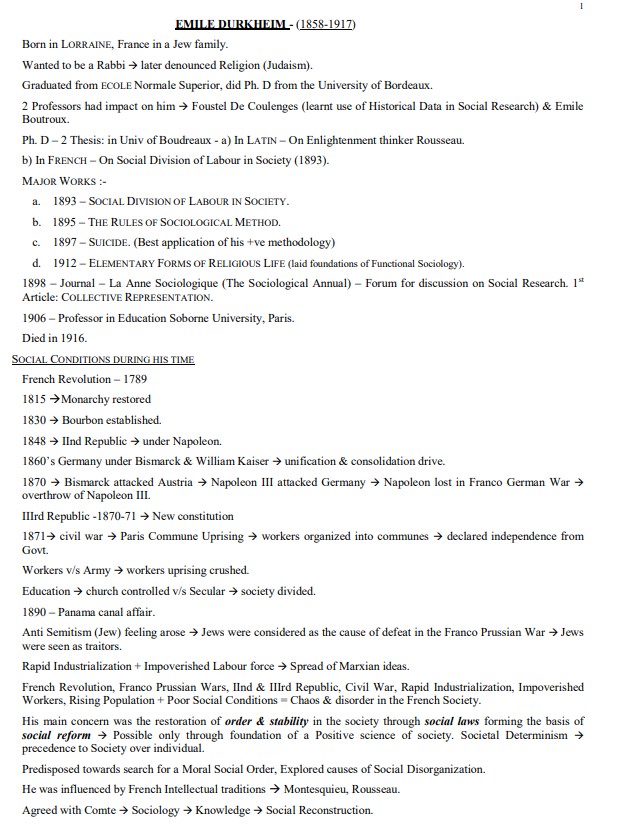Structural and Functional Concepts of Emile Durkheim
Summary:
Emile Durkheim was a French sociologist who is considered the father of sociology. He believed that society and social facts are the objects of study for sociology. In his work “The Rules of Sociological Method,” he elaborates on the concepts of social facts, objective reality, and the scientific method.
In “Division of Labor in Society,” Durkheim argues that the division of labour is the key to understanding social cohesion and solidarity. He believed that society could be divided into two types of solidarity: mechanical and organic. Mechanical solidarity exists in traditional societies where individuals share similar beliefs and values. Organic solidarity exists in modern societies where individuals are interdependent on each other due to the division of labour.
In “Elementary Forms of Religious Life,” Durkheim studied the simplest and most primitive religious institutions of the Arunta tribe of Australian Aborigines. He rejected the reigning theories of religion, including animism and naturism, and saw totemism as the simplest and earliest form of religion. Durkheim believed that religion is a unified system of beliefs and practices related to sacred things and that the sacred is society personified. He argued that the function of religion is the creation, reinforcement, and maintenance of solidarity in society.
Excerpt:
Structural and Functional Concepts of Emile Durkheim
EMILE DURKHEIM – (1858-1917)
- Born in LORRAINE, France, in a Jewish family.
- Wanted to be a Rabbi but later denounced Religion (Judaism).
- Graduated from ECOLE Normale Superior and did Ph. D from the University of Bordeaux.
- 2 Professors impacted him > Foustel De Coulenges (who learnt using Historical Data in Social Research) & Emile Boutroux.
- Ph. D – 2 Thesis: in Univ of Boudreaux
- a) In LATIN – On Enlightenment thinker Rousseau.
b) In FRENCH – On Social Division of Labour in Society (1893).
- a) In LATIN – On Enlightenment thinker Rousseau.
- MAJOR WORKS :
- a. 1893 – SOCIAL DIVISION OF LABOUR IN SOCIETY.
- b. 1895 – THE RULES OF SOCIOLOGICAL METHOD.
- c. 1897 – SUICIDE. (Best application of his +ve methodology)
- d. 1912 – ELEMENTARY FORMS OF RELIGIOUS LIFE (laid the foundations of Functional Sociology).


Reviews